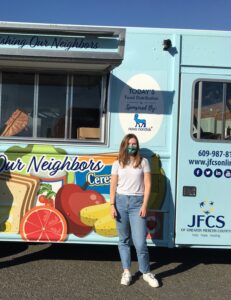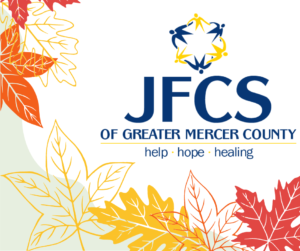Are you feeling quarantine depression? How to combat fatigue, stress, and other signs of depression
 Quarantine depression is part of our new daily vocabulary along with masks, social distancing, and hand sanitizer. This quarantine depression and fatigue is different from clinical depression because the feelings are brought on by the circumstances of the pandemic, whereas clinical depression can happen for a variety of reasons and does not have an external cause, can be chronic and persistent.
Quarantine depression is part of our new daily vocabulary along with masks, social distancing, and hand sanitizer. This quarantine depression and fatigue is different from clinical depression because the feelings are brought on by the circumstances of the pandemic, whereas clinical depression can happen for a variety of reasons and does not have an external cause, can be chronic and persistent.
What can quarantine depression look like?
- Feeling fatigued even when you haven’t engaged in physical activity or upon waking
- Sleeping more than usual
- Having difficulty falling asleep or staying asleep
- Changes in appetite
- Significant weight gain or loss
- Feeling “on edge” or having difficulty dealing with normal life stressors
- Lack of interest in previously enjoyable activities
- Lack of interest in maintaining relationships, even over virtual methods, such as text, email, and video calling
Tips and Strategies to Manage Quarantine Depression:
- Do something each day, it doesn’t have to be a lofty goal, anything is better than nothing and you will find pleasure in checking something off your list.
- Exercise. Go outdoors for a walk, ride your bike, or sit on the porch; the benefits of the fresh air and Vitamin D from the sun can help to boost your mood.
- Meditation. The psychological benefits of meditation are wide ranging: heightened creativity, decreased stress and anxiety, decreased irritability, improved memory and even increased happiness and emotional stability.
- Listen to music. It has been proven scientifically that listening to your favorite music improves your mood.
- Practice self-compassion. Turn off that critical dialogue, what we say to ourselves influences everything; start using supportive, encouraging words.
- Focus on what you can do and accept the things you cannot change.
- Keep a daily gratitude journal; this will help you appreciate the positives which can help reduce stress.
- Stay connected. Even though we cannot be physically together, make that phone call, write an email or letter, send a text to check in with your friends and family.
A licensed therapist can help you identify the causes of your depression and provide the necessary support to help improve your quality of life. Reach out to JFCS…
- During our Drop-in Hours (Mon, Wed, Fri 10 AM – 12 PM or Tues, Thurs 5 – 7 PM) call 609-987-8100 Dial 0
- Connect with our intake coordinator for ongoing counseling at 609-987-8100 Ext 102, we are currently providing therapy via phone and video calls
Shirley Bellardo, LCSW, LCADC (Director of Clinical Services)
Hands-On Education: Impact Through Internship in a Pandemic
We are so pleased to welcome Emmanuelle Farrell, Rutgers MSW student, to the agency for her first internship. She works with clients in Senior Services, Case Management and the Food Pantry and offers to help staff in any way she can. Despite these challenging times, she has already hit the ground running in the few months that she has been here.
Beverly Mishkin, LCSW, Director of Case Management & Senior Services
 Meet Emmanuelle!
Meet Emmanuelle!
My name is Emmanuelle Farrell, and I am interning at JFCS this year as part of my Master of Social Work program at Rutgers University. As a first-year graduate student, working at JFCS has offered me crucial experience with older adults and food insecure residents of Mercer County. As the COVID-19 pandemic has prevented many of my classmates from interning in person, I feel very grateful to be able to complete my internship in the JFCS office, where the few staff members working in-person wear masks and remain socially distant at all times. This direct approach has allowed me to see firsthand the significant impacts of the pandemic on the communities that JFCS serves.
The needs I have observed among the populations that JFCS provides services to appear to be exacerbated by financial, social, and health-related repercussions of the current pandemic. As I work primarily within the Senior Services department, I have noticed that older adults are in need of more than just basic necessities, like food and home health care. In making weekly check-in calls to Holocaust survivors and collecting seniors’ responses to program surveys, I have realized that many older adults are in dire need of companionship. This desire for social interaction has increased dramatically as the danger of contracting COVID-19 has stopped seniors from seeing family members and caregivers as frequently, if at all.
I also work with community members who reach out for assistance and help them get connected with our food pantry as a means of support.
I have also heard from other staff members that the demand for hunger prevention services has heightened significantly due to the widespread unemployment and subsequent economic difficulty associated with the pandemic. In general, the coronavirus pandemic has intensified the financial and interpersonal needs of vulnerable groups, increasing participation in JFCS’ programs and creating a unique learning environment for me as an intern.
There have been many connections between the content of my Master of Social Work courses and my experiences at JFCS. Primarily, I have been able to apply the communication skills I have learned in class to my interactions with clients, including empathetic listening and the use of furthering responses to encourage individuals to share. In addition, my work with the Holocaust survivors at JFCS has allowed me to implement a trauma-informed perspective, which I have learned about in my practice-focused classes. I greatly appreciate the opportunity to unite my academic setting with my fieldwork placement at JFCS.
Following the completion of my Master of Social Work degree, I hope to become a clinical social worker and administer therapy. Although I am interested in working with various populations, I intend to focus on serving trauma survivors through play therapy with children or cognitive behavioral therapy with adults. After becoming involved with JFCS, I have also gained an interest in working with older adults, particularly those who have endured trauma, such as survivors of the Holocaust. I plan to utilize many capabilities that I have developed as a JFCS intern in my future career, including performing intake procedures, researching program outcomes, and engaging compassionately with clients.
Although I have gathered many crucial sights throughout my time at JFCS, the most inspirational aspect of my internship has been the tangible difference that the organization makes in people’s daily lives. Every time I make a check-in call to an older adult, refer a new client to our food pantry, or assist with a distribution through the Mobile Food Pantry, I know I am making a meaningful change for an individual or family in need. I look forward to continuing my internship and furthering the agency’s incredible mission to empower individuals to care for themselves and others.
Emmanuelle Farrell, MSW Intern
End of Year Giving Options, Making an Impact with Your Gift
In Mercer County there is a clear dedication to supporting charitable efforts both locally and more broadly. At JFCS, we are humbled by the support we receive year after year from our donors.
In recent years, changes to tax law have impacted individual giving and caused some confusion for donors as to how to make the most significant impact with their valued contributions.
Our partners Lear & Pannepacker LLP spoke with us to help clarify the changes in tax law and alternative giving options including:
Donate Appreciated Securities: By donating appreciated stocks, bonds or other appreciated investments directly to a charity, the donor can avoid capital gains tax.
Set Up & Gift through a Donor Advised Fund: A donor can make a larger gift up front to a donor advised fund, receive an immediate tax deduction, and then advise on annual grants to charities year after year. Donor advised funds can be set up at local organizations such as Princeton Area Community Foundation or Jewish Community Foundation of Greater Mercer as well as through your bank or financial advisor.
Make a Qualified Charitable Distribution from IRA: Make a transfer of funds directly from your IRA to a charity. These transfers count towards your required minimum distribution each year but are not reported to you as taxable income.
See our full conversation with Lear & Pannepacker LLP for even more information:
A Holiday Message from JFCS: Sharing Thanks, Giving Support
 In honor of the holiday, JFCS wants to share our thanks…
In honor of the holiday, JFCS wants to share our thanks…
To our staff, thank you for giving your compassion, your care, your creativity in the face of unprecedented challenges.
To our Board, thank you for giving your commitment and guidance to keep the agency on a steady course.
To our volunteers, thank you for giving your goodwill and your time. We have multiple programs entirely dependent on our corps of volunteer who have been unwavering in their service through this difficult time.
To our collaborators in the community, thank you for giving us your partnership and proving that we can accomplish more together and support our community through a strong network of resources.
To our clients, thank you for giving your trust to our team to provide you with counsel, with resources, with support in the face of many challenges this year.
To our donors, thank you for giving your support. From the start of the pandemic, you, our supporters, never hesitated in reaching out to see how you could contribute, which programs needed help, always asking “how can we help?”
…And give support.
We want to share a few notes of advice on how to manage the anxiety and stress that accompanies holidays “in the time of COVID-19.”
- Try to be realistic, the holiday does not have to be perfect. Choose a few traditions to hold on to and be open about creating new ones. This could mean that you have a virtual get together, or, weather permitting, dinner could be held outdoors.
- Practice self-care: taking 5 to 10 minutes out of your day to go for a walk outside, listening to calming music, lighting a scented candle, doing breathing exercises, and drinking water.
- Focus on what you are grateful for. Sometimes we need be thankful for what happens to us, sometimes we need be thankful for what does not.
Wishing everyone a safe, healthy and peaceful Thanksgiving.
Tips, Resources & Support for Holiday Season During COVID-19

This time of year is usually full of eager anticipation, cheerful gatherings, acts of kindness and charitable giving. Like so many aspects of life, this year the holiday season will look different than ones that came before. While we will all have to continue to be creative in how and where we gather with family and friends, observe holiday traditions, and participate in the season, we can still make this year meaningful and special.
Coping with Separation & Loss During Celebrations
Do you or your families need a refresher on Zoom? Don’t let anyone feel left out of the virtual celebration, share our step by step Zoom Guide.
Consider a drive-by potluck dinner. If you can’t bring yourself to reduce the recipe of your favorite holiday dish, coordinate with loved ones who may be within driving distance and organize a drop-off potluck. Make the full holiday serving size, divvy up into individual portions, and make a no-contact delivery to loved ones who are close by. OR, if you are far apart from loved ones, especially elderly family members, consider ordering them a prepared meal to be delivered.
Find more tips like this in…
Remember, this year, safety is most important to ensure future holidays celebrations can be shared together in person. Review the CDC Guidelines and Recommendations for Thanksgiving & upcoming holidays.
If you are a caregiver, this holiday can be extra difficult managing the stress of your role in the midst of the pandemic, and without the extra family support during this season. We are here for caregivers.
If you have experienced loss this year, this difficult and distanced holiday time can feel especially challenging to navigate.
- For those of the Jewish faith, join us on December 9 for a special program “Light in the Midst of Darkness: Chanukah in the time of COVID for the Bereaved” Register in advance (fee $10)
Additional resources for the bereaved:
Time for Traditions
Practice gratitude. Here are a number of resources for nurturing gratitude for Thanksgiving and beyond.
Find comfort in the familiar of tradition. Put out the special tableware, the traditional recipes, and find religious services streaming online.
Embrace the nostalgia of the hand-written card. When we are all missing family and friends more than ever, a hand-written (or even hand-made if you want to avoid the stores) card can mean so much to the recipient.
Dress up! Even if you are hosting a smaller gathering than usual, or celebrating solo, dress up in your formal holiday attire. Wearing your holiday best can bring about the celebratory spirit!
Missing out on the cookie baking marathon with your loved ones? Set up a video call and bake “together.” This can be a special opportunity to record your family members passing down beloved family recipes which can be cherished for generations.
Find more tips like this in…
Community Event: Interfaith Thanksgiving Service dedicated in memory of Rabbi Feldman
Thurs, November 26 @ 11:00 AM
Join for a special interfaith service for the holiday. STREAM LIVE
Make this time Special with Service
This has been a challenging year for many – job loss, food insecurity, seniors feeling especially isolated. In this season of giving, find ways to make a difference in your community…
Participate or lead a Thanksgiving/Holiday Food Drive. Check with local pantries if they are collecting specific items for the upcoming holidays or if they are in need of pantry staples.
- Want to support JFCS pantry clients? Contact us: BethE@jfcsonline.org / 609-987-8100 Ext 126.
Want to get out into the community? Food banks, food pantries and soup kitchens continue to see rising demand. Reach out to organizations in your area and inquire about volunteer opportunities. Many organizations are relying on volunteers to facilitate large-scale grab and go meal distributions.
- Help at JFCS! We welcome volunteers to help pack prepared bags of food for our on-site and mobile food pantries. Contact us: BethE@jfcsonline.org / 609-987-8100 Ext 126.
Share a smile with a senior. The restrictions of current quarantine orders dramatically impact older adults. Consider making holiday cards to be shared with isolated seniors. Reach out to local senior care facilities or organizations to inquire about how to best distribute holiday greeting cards to their residents/clients.
- JFCS is collecting cards for our senior clients which will be distributed to those who receive delivered meals and food. Contact Eden Aaronson to learn more: EdenA@jfcsonline.org / 609-987-8100 Ext 113.
Make a donation. Find an organization close to your heart and make a gift that is meaningful to you to support them. Share with family and friends why this cause is important and encourage them to do the same.
- You can help make the holidays special for JFCS clients by donating gift cards to our L.I.G.H.T.S (Love is Getting Holidays Gifts to Share) program. Learn more here.
- By making a general monetary donation to JFCS, you are enabled us to continue our vital support to the community through our food pantries, senior support and mental health care. Make a donation today.
Embrace the Opportunity for NEW Traditions
Never had time to make a Turkey Trot before now? Most charity walks/races have gone virtual and can be completed from anywhere! Make a team with family and friends no matter how distanced you are, and embrace the chance to create a new tradition with them.
- You can participate in the Mercer County Turkey Trot Nov 21 – 28! Proceeds help support Mercer County food pantries including JFCS. Sign up today!
Create a Secret “Snowflake” gift exchange through the magic of Amazon Prime (or any online store). Organize a gift exchange through a broad network using social media or keep it to a close-knit group with whom you may not be able to gather in person with this year.
Seek out virtual holiday concert or performances, coordinate virtual “watch parties” of your favorite holiday movies with your loved ones, enjoy outdoor, socially distanced opportunities like drive-through or walk-through light displays, and explore local opportunities like Palmer Square holiday weekends or Morven Museum & Garden Festival of Trees.
This Thanksgiving, enjoy an Interfaith Service, dedicated to the memory of Rabbi Adam Feldman. Stream the program live, Thursday, November 26 at 11 AM.
Festive Foods
See a guided video by our very own Andrea Gaynor to make your own Sufganiyot (Jelly Doughnuts) for Hanukkah!
Our registered dietitan has shared tips and recipes for budget-friendly and time-conscious Thanksgiving dishes.
Check out additional family friendly recipes:
Games & Crafts
Get crafty and creative this holiday season with these activities fun for all ages!
- Holiday Family Fued (make teams and play over Zoom!)
- Thanksgiving Gratitude Game
- Thanksgiving Movies (set up a virtual watch party for loved ones near & far!)
- DIY Mason Jar Luminaries for your holiday table
- Mason Jar Leaf Luminaries
- Make Your Own Hanukkah Candles
- Origami Paper Dreidal
- DIY Menorahs
- Hanukkah Family Game Night – ideas for all 8 nights!
- Gift Wrapping Tips
Do What Works Best for YOU and Your Mental Health
It has been said that during the pandemic, sometimes it takes more effort to accomplish less. The emotional and mental toll of the past months may leave many feeling exceptionally fatigued by the holidays before they have even arrived.
If you need to keep things simple to protect your mental health, then take the time for self-care. If you’re feeling over-Zoomed before weeks of virtual holiday drinks, be honest with your family and friends and let them know you cannot join all of the engagements.
Find information & tips in our blogs:
- Practicing Self-Care
- Supporting Those Around You, AND Caring For Yourself
- A Reflection on “Making the Most of Your Time”
- Review breathing & mindfulness exercises (VIDEO)
- Understanding your feelings of grief for the “loss of normal” (VIDEO)
And, if you need to talk to someone, reach out to JFCS…
- During our Drop-in Hours (Mon, Wed, Fri 10 AM – 12 PM or Tues, Thurs 5 – 7 PM) call 609-987-8100 Dial 0
- Connect with our intake coordinator for ongoing counseling at 609-987-8100 Ext 102
Hospice Myths & Truths, Answers to Your Questions About Hospice Care
JFCS and Secure@Home were proud to partner with Greenwood Hospice Team to present on hospice myths and truths. The Greenwood Hospice Team addressed important misconceptions about hospice care and what it means and answered your questions like…
How do I know it is time for hospice care? How is it determined that someone qualifies for hospice?
How do I find the right hospice care for myself or my loved one?
Is there coordination between hospice and the patient’s personal physician?
What if there is no family at home with someone who needs hospice care?
How do you handle it if a patent has dementia and wants something that the family doesn’t want for them?
Presenters:
Beverly Mishkin, LCSW, Director of Senior Services & Case Management (JFCS)
Joy Simons, RN, CHPN : RN/Case Manager and Admissions Coordinator (Greenwood Hospice)
Edwin Arevalo,Jr. MDiv, MSCC : Chaplain/Spiritual & Bereavement Counselor (Greenwood Hospice)
Marcelle McGovern, LSW, MSW: Medical Social Worker (Greenwood Hospice)
View the full webinar recording below:
Feeling stressed about the election? How to cope with anxiety & uncertainty in the days and weeks ahead
You may be experiencing symptoms of Election Stress Disorder.
 The 2020 election season would have been a stressful one even during normal times but, compounded with a pandemic it is creating, for some, incredible stress and frustration. If you find yourself experiencing what has been described as Election Stress Disorder you are not alone; according to a study recently conducted by the American Psychological Association, 68% of Americans are feeling significantly stressed by this presidential election. For some, tomorrow and the weeks ahead will be highly emotional, so it is essential to consider how to manage your mental and emotional wellbeing.
The 2020 election season would have been a stressful one even during normal times but, compounded with a pandemic it is creating, for some, incredible stress and frustration. If you find yourself experiencing what has been described as Election Stress Disorder you are not alone; according to a study recently conducted by the American Psychological Association, 68% of Americans are feeling significantly stressed by this presidential election. For some, tomorrow and the weeks ahead will be highly emotional, so it is essential to consider how to manage your mental and emotional wellbeing.
Below are a few suggestions that could provide you with a balance:
Try to keep things in perspective.
It’s common to experience strong feelings of distress related to elections. To help you cope, validate whatever emotions you’re experiencing, while working to reframe intrusive thoughts like hopelessness or despair. If you are feeling discouraged by current events, remind yourself that situations may shift in the future.
Set boundaries with family and friends.
Having boundaries means offering one another the space to celebrate, mourn, and process feelings as needed. Avoid minimizing or judging other people’s reactions, especially if those reactions are different than yours. Give people space to cope in the ways that best suit them.
Try not to dwell.
Instead of dwelling on fears by letting your mind run wild, ask yourself if there are any action steps you can take to improve the situation and/or your mental health. Anxiety functions to make us feel powerless; doing something – anything – can help empower and bring us back into healthy coping.
Self-monitor your emotions.
Prepare for delayed results; it may take days or weeks, self-monitor and respond appropriately to your emotions. If the outcome is not what you were hoping for, find peaceful and adaptive ways to advocate for what you believe in.
Limit your news consumption.
Make opportunities to disconnect from the media, particularly if you find yourself becoming distraught, anxious, or emotionally reactive. The news is sure to be more exhausting in the coming weeks, which is why a plan for consumption can be beneficial.
Tomorrow, Election Day.
On the day of the election, start off with a moment of gratitude and self-care; this may look like journaling, a short meditation or being in nature.
Shirley Bellardo, LCSW, LCADC (Director of Clinical Services)
What happens in therapy? What should you know about starting therapy?
Let’s start with the first steps…getting connected with a JFCS therapist.
When you first call for a therapy appointment at JFCS, you will speak with our intake coordinator who will ask a few questions to gather some background information to pass along to the therapist with whom your case is assigned.
You will be asked for a general description of why you are coming to therapy – what is called the presenting problem. The reason the intake coordinator asks is to be sure that we are able to provide services for the problem you are dealing with. For example, if someone is experiencing a drug addiction, we would refer them to another provider as we do not provide substance abuse counseling. The intake coordinator is bound by the same HIPPA laws regarding confidentiality and privacy of healthcare information as the therapist.
 When one of our therapists is assigned to you, they will phone you and schedule an initial assessment session which will last for about one hour. This time is a ‘getting to know you’ session, where the therapist will complete what is called a Biopsychosocial Assessment, asking questions to better understand your background, current problems, symptoms, as well as strengths. Oftentimes, more than one session is needed to gather information to conduct a thorough assessment. We don’t want anyone to feel rushed while sharing their personal story of life experiences
When one of our therapists is assigned to you, they will phone you and schedule an initial assessment session which will last for about one hour. This time is a ‘getting to know you’ session, where the therapist will complete what is called a Biopsychosocial Assessment, asking questions to better understand your background, current problems, symptoms, as well as strengths. Oftentimes, more than one session is needed to gather information to conduct a thorough assessment. We don’t want anyone to feel rushed while sharing their personal story of life experiences
At the initial assessment session, paperwork will also be reviewed, such as HIPPA forms, agency policies regarding attendance and other issues. Once the assessment is completed and it is determined that JFCS is the appropriate level of care for your presenting problem, the therapist and client will together develop a Treatment Plan which defines the problem and goals for treatment focus. It is important for both client and therapist to understand what is the ‘endpoint, or when will both know that therapy has been successful.
 What does a typical therapy session look like?
What does a typical therapy session look like?
Therapy can be held individually, as a couple, with a family unit, or in a group with a common treatment focus. Therapy is also available to anyone from childhood to elderly adults. Here at JFCS we can provide therapy services for children starting at age 5 and up to adults of any age.
Sessions are usually held every two weeks and last approximately 45-50 minutes. The length of treatment can vary depending on the complexity of issues which are the focus of treatment. The treatment goals and decisions for how often and how long to meet are collaboratively discussed by the client and therapist.
Currently, for the health and safety of all during the COVID-19 pandemic, all therapy sessions at JFCS are being conducted through video teletherapy on Zoom or by phone. Many other agencies and therapists throughout NJ are also providing services via video teletherapy.
 There are both advantages and drawbacks to this mode of providing therapy. Some of the benefits of engaging in therapy remotely are: there’s no need to travel to an office – you receive services in the comfort of familiar surroundings; it’s an easy process – your therapist emails you a link which you click on at the time of your session to connect for a session. Our team at JFCS has found that clients, overall, have enjoyed the many advantages of video teletherapy.
There are both advantages and drawbacks to this mode of providing therapy. Some of the benefits of engaging in therapy remotely are: there’s no need to travel to an office – you receive services in the comfort of familiar surroundings; it’s an easy process – your therapist emails you a link which you click on at the time of your session to connect for a session. Our team at JFCS has found that clients, overall, have enjoyed the many advantages of video teletherapy.
What would be helpful to know about therapy?
Roles: The relationship between the therapist and client is a professional relationship. This means that the relationship’s purpose is to benefit the client and that there are established boundaries or limits that are deemed appropriate according to the ethical standards set by the therapist’s profession, ex. social work code of ethics. This therapeutic relationship is different from your other relationships. The therapist is bound to keep confidential the information you share with them, with a few exceptions, ex. harming self or others. You can feel confident that what you talk about will stay with your therapist, this may not always be true of your conversations with friends and family.
Therapists reveal very little about themselves to clients, and if they do share something of a personal nature, it needs to be in the service or benefit of the client. The focus of the session is on you, the client; the therapist is there to assist with compassion and without judgment.
While it may seem like a nice idea to be able to continue a relationship outside of the therapy sessions, this is not possible. The therapeutic relationship is not a two-way relationship where both parties get to know each other. The role of the therapist is to help their client, never the other way around. Most therapists genuinely care about their clients and want to see them improve. Establishing healthy boundaries helps with this process.
Guidelines: At the initial session, most therapists will provide information to the client regarding the agency’s policies, such as the cancellation/no show policy, policy related to fees and insurance, how to best contact your therapist between sessions, etc. Discussing this information early on can help to clarify expectations and responsibilities for both client and therapist and help prevent any future misunderstandings. If you have any questions at any time, do not hesitate to bring them up to your therapist.
Expectations: Along with a strong therapeutic relationship, there are several factors that can promote positive therapy outcomes.
- Regular attendance to the sessions
- Being willing to have the “difficult” conversations
- Sharing honestly in session
- Fully participating in therapy
- Being open to feedback
- Completing any tasks or written exercises outside of session
Feeling unsure about therapy?
If you are hesitant about meeting with a therapist, let me share this: Do you think it would be realistic – or a good idea, for a person to go through their entire life, and never see a medical doctor for physical problems? Probably not.
Throughout our life we are bombarded with many outside toxins, viruses, germs, and we also have body parts and systems that wear out or get injured. To alleviate these various illnesses and problems we may need professional help, medical help, to deal effectively with the problem.
It is the same with our mental health. Is it realistic to think that we can go throughout our entire life without needing some professional help for our mental health related problems? Our mental health is just as important as our physical health.
When you are in need of therapy remember that JFCS is here for you. Call 609-987-8100 to schedule an appointment with one of our licensed therapists.
Teri Cheresnick, LCSW, LCADC
Are you feeling the winter blues? Darker days affecting your mood?
Managing Seasonal Affective Disorder During the Pandemic
As we brace for the winter months when the days will grow shorter and become darker, the psychological effects of the lack of sun can go beyond “winter blues” to a form of depression known Seasonal Affect Disorder (SAD). According to the National Institute of Mental Health, SAD is a type of depression that comes and goes with the seasons, typically starting in the late fall and early winter and going away during the spring and summer. Depressive periods linked to the summer can occur but are much less common than winter episodes of SAD. It is estimated that SAD effects five percent of the U.S. population each year. With the additional complications and stress of the COVID-19 pandemic, the effects of SAD may be more pervasive than usual this year.
 Why is sunlight so important? Exposure to sunlight is believed to increase a hormone in the brain called serotonin which is associated with boosting your mood and helping you to feel more focused and calmer. The darker lighting at night triggers the brain to make another hormone called melatonin which is responsible for helping you sleep.
Why is sunlight so important? Exposure to sunlight is believed to increase a hormone in the brain called serotonin which is associated with boosting your mood and helping you to feel more focused and calmer. The darker lighting at night triggers the brain to make another hormone called melatonin which is responsible for helping you sleep.
Symptoms of SAD are similar in nature to the symptoms of any other depression: feelings of sadness, difficulties getting out of bed, sleep problems, low energy, loss of interest in activities, difficulty concentrating and feelings of hopelessness or thoughts of death or suicide. In addition, SAD symptoms might include a craving for carbohydrates, overeating, turning to drugs, alcohol or tobacco to cope, self-isolation/distancing more than what is recommended.
To avoid or at least minimize SAD symptoms, it would be helpful to start now and establish good mental health habits rather than wait when the shorter and colder days are upon us. Here are some strategies to try:
If you cannot go outside, bring the sun indoors.
Light therapy can be a great way to fool your brain into making more of the chemicals that make you feel good — the same chemicals that you’re missing during a bout of seasonal depression. Search for lights that mimic natural light or light therapy boxes.
Healthy body and healthy mind.
Eat healthy, get plenty of exercise, meditate, engage in spiritual connectedness, and stimulate your intellectual curiosity by exploring new ideas.
Essential oils.
There are a variety of essential oils that are recommened to help relieve symptoms of SAD; such as, bergamot, lavender, sandalwood, sage, basil, chamomile, lemon, peppermint, jasmine, and orange.
Do what you enjoy.
Make time for your hobbies – music, cooking, playing an instrument, dancing, drawing or journaling.
Balanced life.
Make an effort to achieve balance between your personal and professional life and treat them as two different worlds. This is especially important for anyone working from home because of COVID-19. Try and keep separate spaces for work/school and relaxation; remember to “log-off” after your usual work day and disconnect fully when transitioning to your personal time.
Get support.
If your symptoms are affecting your daily life and functioning, a licensed therapist can provide you with a variety of coping skills and support to improve your mental health well-being. JFCS is here for you. Call 609-987-8100 to schedule an appointment with one of our licensed professionals.
You can also be immediately connected with a counselor during our Phone Drop In Hours:
Monday, Wednesday, Friday 10 AM – 12 PM
Tuesday & Thursday 5 – 7 PM
Shirley Bellardo, LCSW, LCADC (Director of Clinical Services)
